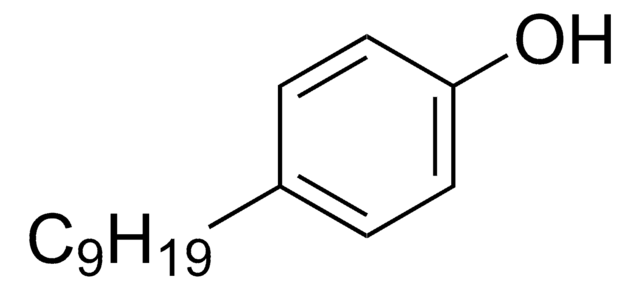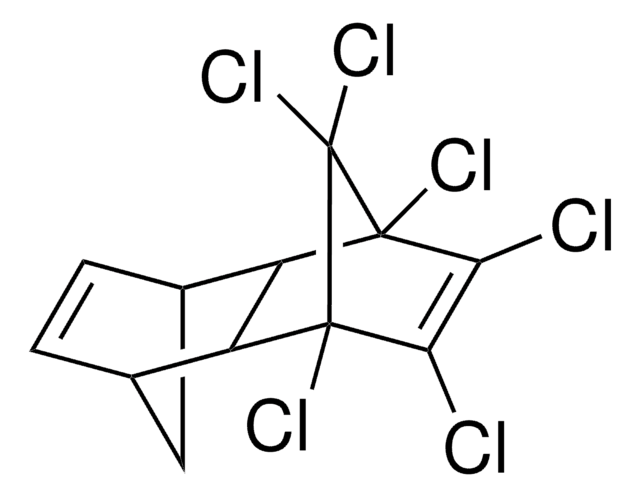32467
4-tert-Octylphenol solution
1000 μg/mL in acetone, analytical standard
Synonym(s):
4-(1,1,3,3-Tetramethylbutyl)phenol solution
About This Item
Recommended Products
grade
analytical standard
Quality Level
shelf life
limited shelf life, expiry date on the label
concentration
1000 μg/mL in acetone
technique(s)
HPLC: suitable
gas chromatography (GC): suitable
application(s)
environmental
format
single component solution
storage temp.
−20°C
SMILES string
CC(C)(C)CC(C)(C)c1ccc(O)cc1
InChI
1S/C14H22O/c1-13(2,3)10-14(4,5)11-6-8-12(15)9-7-11/h6-9,15H,10H2,1-5H3
InChI key
ISAVYTVYFVQUDY-UHFFFAOYSA-N
Looking for similar products? Visit Product Comparison Guide
Related Categories
General description
Application
- Human biological samples and water samples by stir bar sorptive extraction (SBSE) and thermal desorption–gas chromatography-mass spectrometry (TD-GC-MS) operating in the selected ion monitoring (SIM) mode of detection.
- Surface water samples by GC-MS with SIM detection.
related product
Signal Word
Danger
Hazard Statements
Precautionary Statements
Hazard Classifications
Eye Irrit. 2 - Flam. Liq. 2 - STOT SE 3
Target Organs
Central nervous system
Supplementary Hazards
Storage Class Code
3 - Flammable liquids
WGK
WGK 2
Flash Point(F)
1.4 °F - closed cup
Flash Point(C)
-17.0 °C - closed cup
Regulatory Listings
Regulatory Listings are mainly provided for chemical products. Only limited information can be provided here for non-chemical products. No entry means none of the components are listed. It is the user’s obligation to ensure the safe and legal use of the product.
EU REACH SVHC Candidate List
Choose from one of the most recent versions:
Already Own This Product?
Find documentation for the products that you have recently purchased in the Document Library.
Our team of scientists has experience in all areas of research including Life Science, Material Science, Chemical Synthesis, Chromatography, Analytical and many others.
Contact Technical Service







